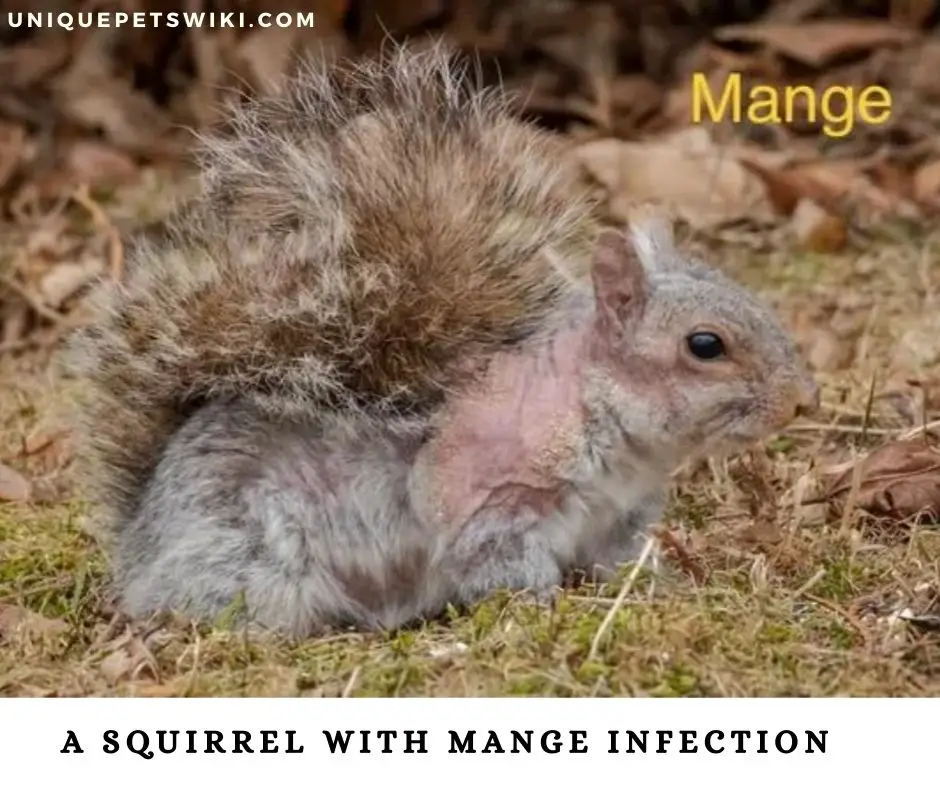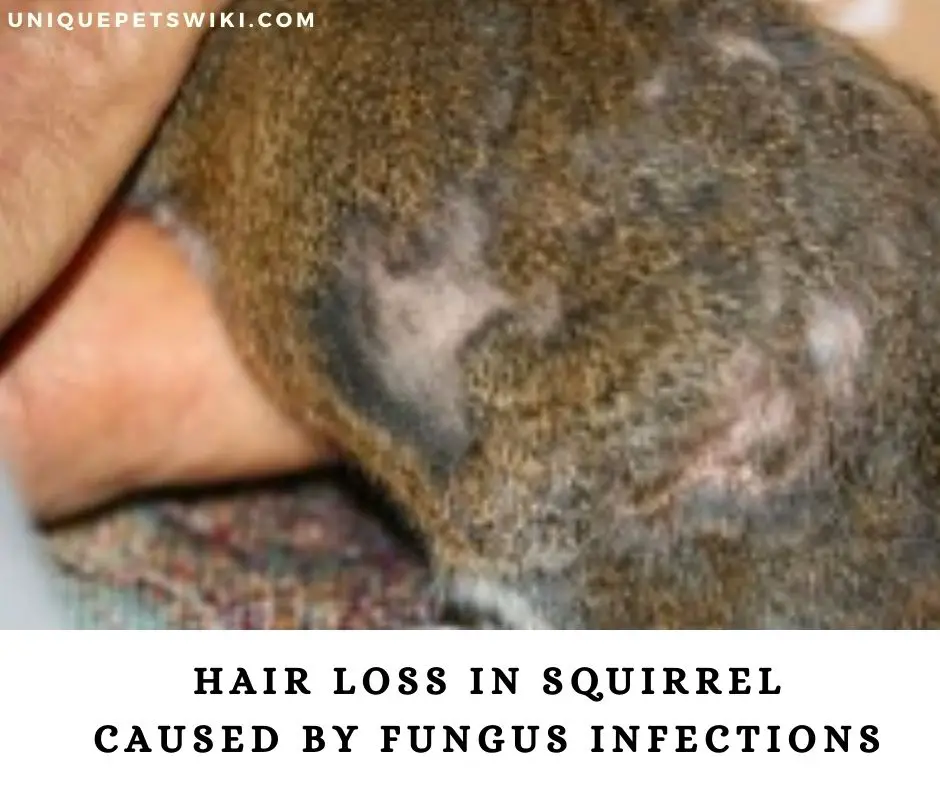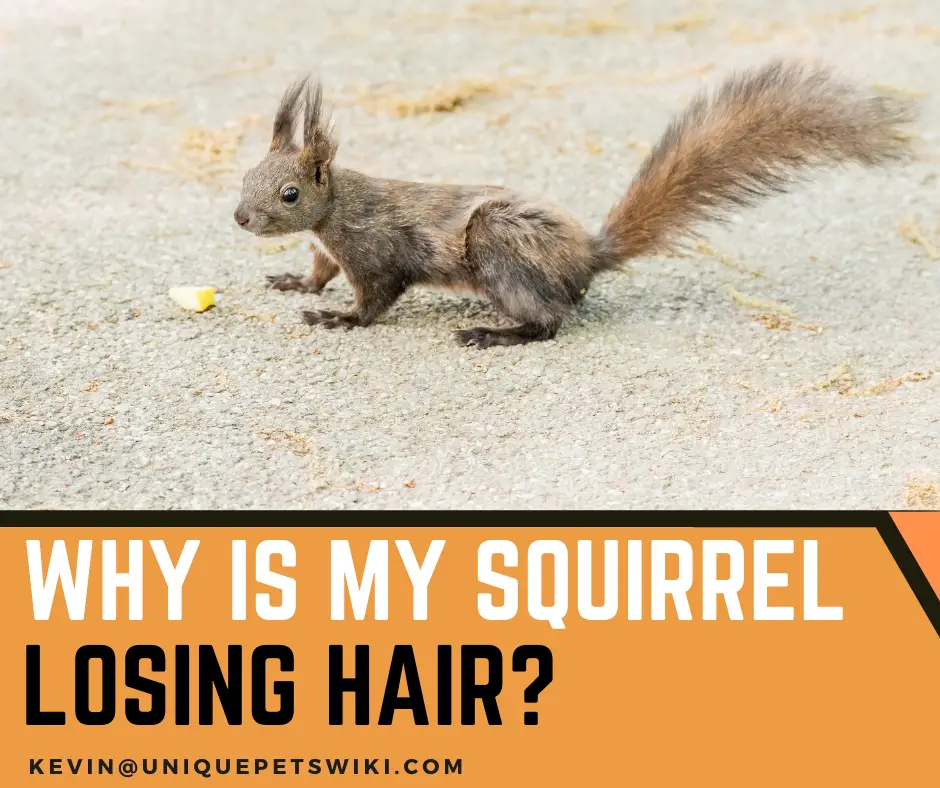Don’t you love squirrels? Yep, who doesn’t? If you are among the concerned squirrel enthusiasts that ask “Why Is My Squirrel Losing Hair?” then this article is for you. Well, various generations of squirrels have become accustomed to human interaction in urban and suburban areas. Many people are fond of these little and feisty creatures.
Some keep them as pets too. It’s not uncommon for people to become concerned when they see squirrels with patches of missing fur.
However, this is usually nothing to worry about. Several conditions can cause fur loss in squirrels, including a benign hereditary condition, mange, and fungal infections.
Are you struggling to find out the reason behind your squirrel losing hair? Read on to learn what are the causes of squirrel baldness and how to curb this.
This article has been reviewed by Dr. Linda. Read more about our knowledge control process here.
Contents
Do Squirrels Lose Hair?

Yes, squirrels do lose hair. But due to some diseases. A squirrel may occasionally lose hair from its tail or body due to parasites, fungi, or traumatic encounters.
Because of these things, a squirrel might lose their entire body or just tail hair. They can develop dry, thickened, and dark skin and eventually lose hair and become bald.
Depending on the severity, these can range from thinness to baldness or bloody or scabbed patches of missing hair. When the body becomes totally bald or wholly hairless, the squirrels may die from exposure since they no longer have their insulating layer of fur.
A squirrel’s diet or habitual activity can also cause hair thinning and loss. A high salt intake can cause the tail to lose hair and thin. Nuts seasoned with salt should never be fed to squirrels! Raw nuts or unsalted nuts should not exceed 20% of their daily dietary intake.
Why Is My Squirrel Losing Hair? 3 Basic Causes To Make Your Squirrel Losing hair
Some people become concerned when they see squirrels with patches of missing fur. Most of the time, this isn’t an issue. Fur loss in squirrels can be due to various causes, including hereditary disorders, but mange and fungal infections are among the most common. Let’s discuss these three basic causes in detail below:
Mange Infections

- Notoedres douglasi is the tiny mite that causes mange on squirrels. Unlike human scabies, squirrel mange is not transmitted to humans.
- The symptoms are similar to those caused by scabies but not as severe. Notoedric mange in squirrels often results in baldness, thickened skin, and darkened fur.
- A healthy squirrel can usually recover from an infestation of mange, but it takes some time, and without hair, squirrels can become vulnerable to the weather, especially in the winter!
- Mange in squirrels is traditionally treated with Ivermectin, which can either be obtained from your veterinarian, purchased online, or purchased over the counter. In the case of massive infestations, when there is a threat to the squirrel’s life, Ivermectin 1.87% is recommended.
- Necdotally, someones find colloidal silver may help to treat mange. Generally, it won’t kill adult mites; however, it will weaken the cell walls of their eggs, allowing the body’s killer T- cells to penetrate and destroy the larvae. This will solve the infestation.
- A small amount of Ivermectin paste can be applied to walnut or pecan nutmeat, and it should be fed once a week for three weeks.
Fungal Infections

- Squirrels lose their hair because of dermatophytosis, a fungal infection. It’s not that the squirrel loses hair, but that the fungus makes it break off.
- In moist, warm environments, most fungi thrive. Consequently, dermatophytosis can occur in warm, moist climates or during periods of unusual rainfall.
- If a squirrel’s immune system is in good condition, it can recover from fungal hair loss. Squirrels with weakened immune systems also may not fare well!
- The immune system of the squirrel will eventually overcome Dermatophytosis, so it is not necessary to treat it. However, nutritional support is the treatment for squirrels having weak immune systems. Squirrels can be helped by feeding them raw coconut chunks and coconut oil because they contain antifungal fatty acids.
Inherited In Genes
- Inherited genes may cause a squirrel’s hair loss. Some of these squirrels could not have shed their hair – their bald patches could have never grown hair.
- The hair follicles of fox squirrels and gray squirrels are sometimes absent or do not function properly, leaving bare patches of skin. Otherwise, the skin is normal and disease-free.
- Genetically, animals affected by this condition probably will not recover their hair, as the condition is perhaps a genetic defect.
- There is no specific treatment for inherited defects, but you can alter their diet and reduce salt intake or apply coconut oil to their patchy skin to cure hair loss.
Summing Up
You will often find squirrels losing hair! That is a problem, Indeed. But I’ve found that providing the right natural products or treatments to the squirrels, and improving their diet, makes a big difference in resolving most of their problems! In general, this is how and why squirrels lose hair.
